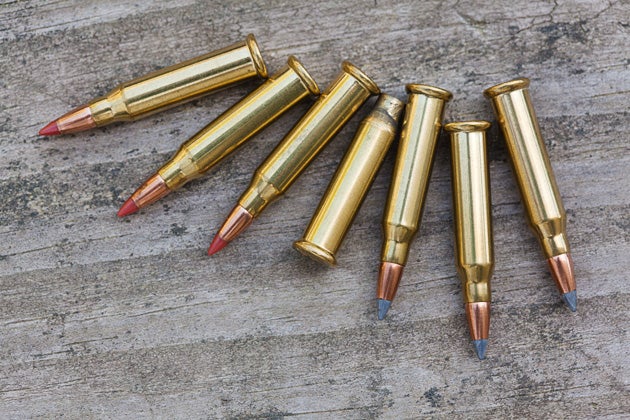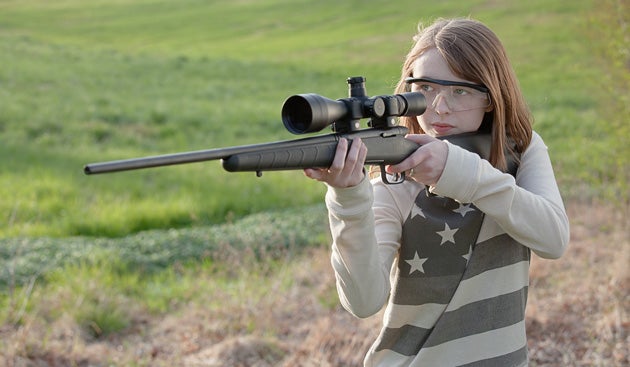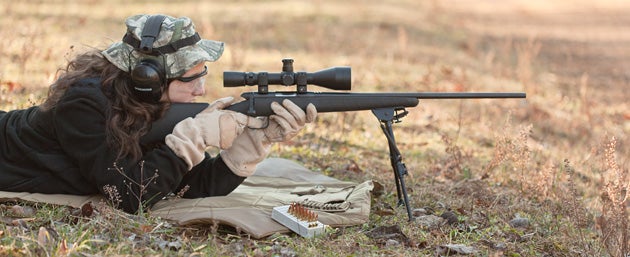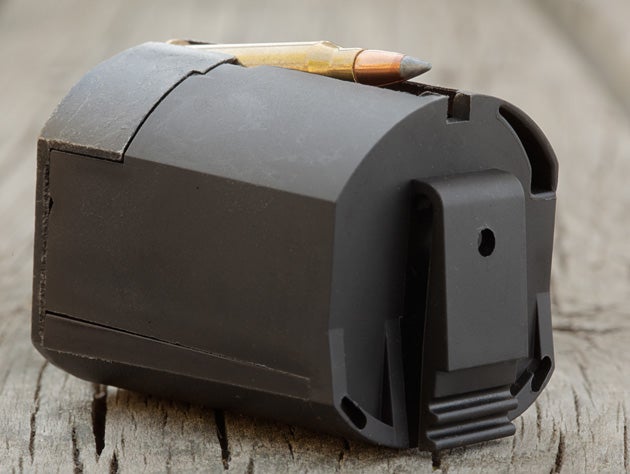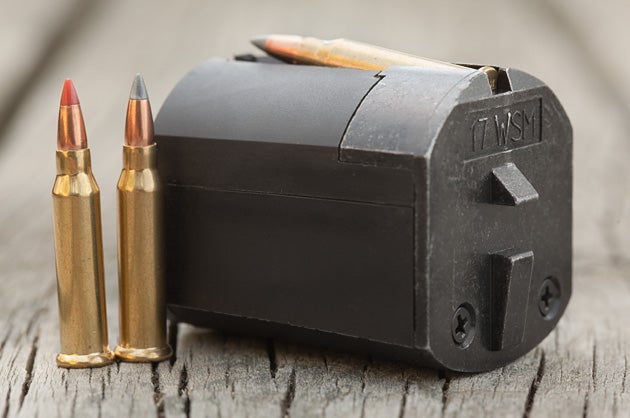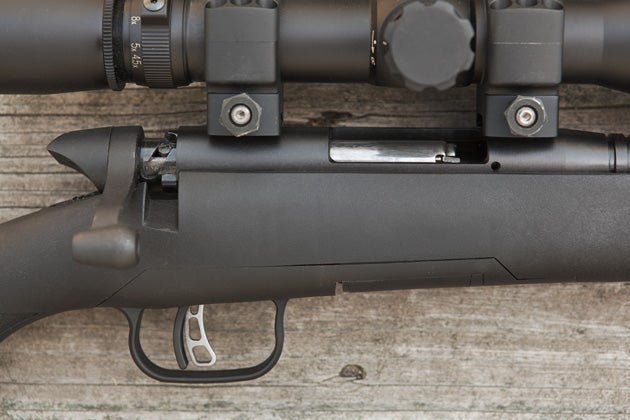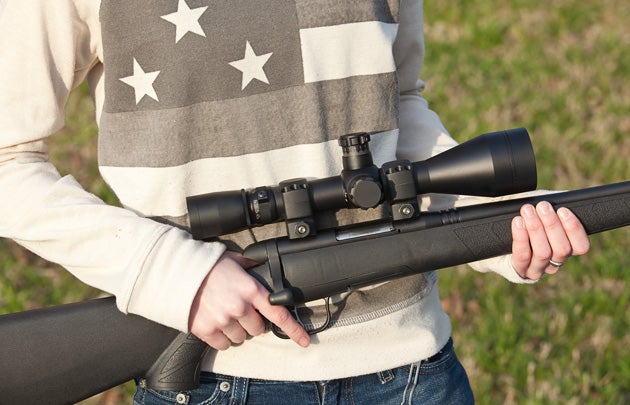Savage B.Mag 17WSM
Oleg Volk 04.21.14

.17 Winchester Super Magnum was introduced last year and looked ready to take over the high-velocity corner of rimfire varmint ammunition. Pat Cascio posted an early review here on AllOutdoor, and I recommend it for the the background information. To sum up the reasoning behind 17WSM: centerfire performance at rimfire prices.
Compared to 17HMR, the new round is a lot faster — 3000fps vs. 2350 for the same 20-grain bullet weight — and so it has the same exterior ballistics at 140 yards as 17HSM has at the muzzle. Assuming 300 yards as the far limit for tagging prairie dogs and other small rodents, we get 40% more downrange energy, 40% less drop, and 25% less wind drift. Compared to the other newly available, high velocity round, 22TCM brought out by Armscor (40gr at 2800fps from the upcoming carbine), 17WSM has the same retained energy but whopping 40% less wind drift.
Numbers aside, how did the rifle shoot? Savage B.Mag is a very light gun, with the majority of its weight comprised by the barrel. It can be easily aimed off-hand even by diminutive teenagers. However, once scoped with serious glass and set up on a bipod for the long range role, it feels sufficiently solid. And serious glass is quite appropriate to it, given the intended use for tagging small critters at ranges far exceeding the 50 yard parallax setting of rimfire scopes. The usual excellent Accu-Trigger made precision shooting a breeze. Typical groups at 100 yards approached an inch with both loads. Felt recoil was negligible, and muzzle blast was quite tame as well. With 100 yard zero, sporting clays could be tagged out to 150 yards just by holding center and past 180 by holding at the top edge.
The 8-shot rotary magazine made of metal front and plastic back segments looked a little rough but worked flawlessly and was easy to load. Massive lock-up tabs keep it well aligned for reliable feeding.
The stock, while very lightweight, did not appear to flex on firing. On my early production sample, the bolt cycling was a bit rough and the bolt handle could be turned down before the head locked into battery if not careful — but that has been corrected on later samples of the rifle.
Overall, the rifle was very comfortable to hold both for snap shots and for deliberate aiming from prone. It was one of the most fun rifles I ever tried, and everyone who tried it wanted to buy one. The appeal of a mostly recoil-less firearm with authoritative downrange ability was definitely appreciated.
My test firing of the 25 grain load into ballistic gelatin at close range showed fragmentation starting almost immediately. Bullet fragments formed a 2-inch wide pattern extending about 4.5 inches deep, with one large bullet fragment continuing straight and reaching the depth of ten inches. In other words, a small rodent would have a relatively large wound channel, and a larger creature would still have an exit wound if no major bones were struck. The 20 grain bullets fragmented similarly but without the larger detached piece, and would be more appropriate for small varmints than for something like a coyote. At greater ranges, penetration would be fractionally greater and fragmentation reduced slightly.
At introduction, ammunition was to cost $14 per 50 round box, about half the price of the comparable centerfire ammunition like 5.7×28. Unfortunately, at this time no US retailer I found has any 17WSM ammunition in stock. The ammunition is readily available in Canada but cannot be shipped to individual US consumers due to the import regulations. Our government, as usual, is looking out for our interests. Since reloading rimfire cases is not practical, the usefulness of rifles in 17WSM is limited by the scant ammunition supplies. So, for the moment, this caliber is dormant until better times.
